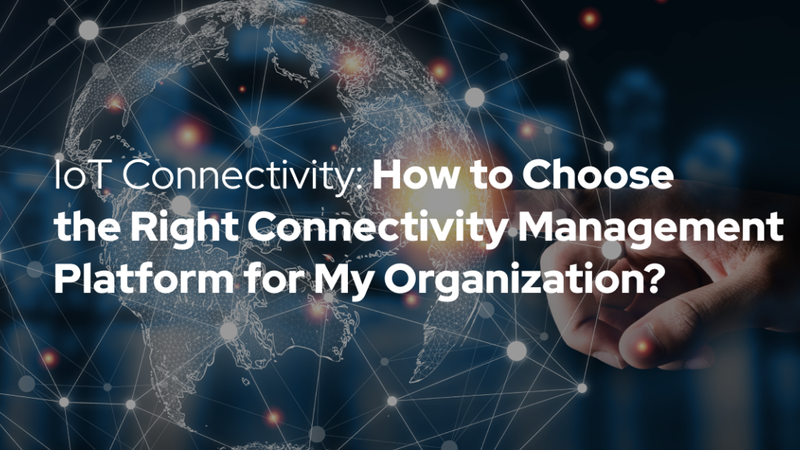How to Choose The Right IoT Connectivity Platform? Monogoto
IoT Connectivity: How to Choose the Right Connectivity Management Platform for My Organization?

The internet of things (IoT) is quickly becoming a reality for businesses around the world. As the need for more and more device integration arises, companies are facing many connectivity and security issues. Where traditional approaches are stagnating, connectivity management platforms are a promising new approach for providing businesses with the IoT connectivity they need.
Traditional MNO Solutions
Traditional mobile network operators (MNO) have been a source of many early IoT connectivity solutions. They are well established and have an extensive infrastructure. During the earliest phase of IoT development and progress, incumbent mobile network operators like AT&T and Verizon were essentially the only option for connectivity. As such, many IoT implementations successfully made use of MNOs for their connectivity.
Despite some success, traditional MNO infrastructure was not designed with the IoT in mind. They’re moving forward with more LTE and 5G features, but these do not address some of the key areas that distinguish MNO from other IoT connectivity options.
Global SIM Card MVNO IoT Connectivity
A more versatile solution for the diverse needs of IoT connectivity is mobile virtual network operators (MVNO). MVNO IoT connectivity can allow for a more integrated IoT approach, delivering more security, connectivity, and versatility organizations need. While these solutions are a significant improvement, there is still a key component that is missing.
There is a wealth of features organizations can find in an IoT connectivity management platform that they cannot achieve with MVNO alone. AVSystem has laid out some of the key requirements for IoT connectivity, and it’s clear that to transform an organization’s hardware, software, and tech into a truly integrated IoT, a more thorough approach will be necessary.

API-Based MVNO Connectivity Management Platforms
API-based MVNO solutions deliver something that traditional MNOs and even global sim card MVNO solutions can’t provide. These types of solutions focus on giving businesses the necessary tools to adapt IoT connectivity to their unique needs.
API-based connectivity management platforms increased security and versatility. With them, an organization can configure alerts for any events on the network, send custom commands, and maintain complete control over their security profile. This is the kind of versatility that’s needed for an effective IoT connectivity solution.
The issue of proper IoT integration cannot simply be ignored, with Statista projecting the number of IoT device connections to nearly triple by 2025. Organizations need reach, security, and efficiency for their IoT integration. A connectivity management platform will deliver results in all of those areas.
A connectivity management platform optimizes IoT connectivity, enabling businesses to deploy services faster and reach further. The entire development process is accelerated, with less debug time and many functions offloaded onto the platform.
Connectivity management platforms include automation tools that work off of information within the network and automatic commands. Combined with cloud integration with consumption-based pricing, organizations can make more effective use of their resources and their budgets.
Getting Started With Monogoto
Connectivity management platforms represent a new way of looking at IoT connectivity, and Monogoto is at the head of the pack when it comes to this new technology. Our connectivity management platform integrates all elements of your IoT connectivity, meaning there is no need for additional security measures. We know that there is no one-size-fits-all solution here, and we’ve built our entire organization around that principle.